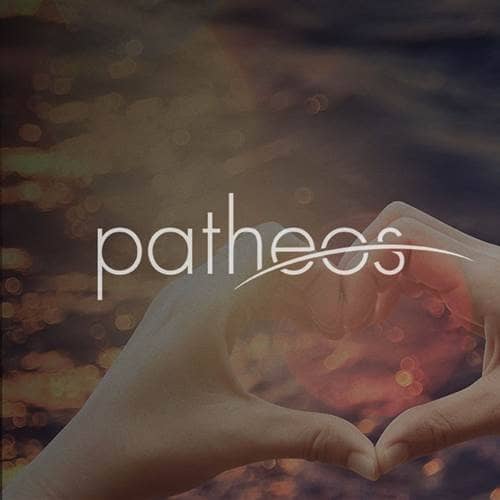- Trending:
- Pope Leo Xiv
- |
- Israel
- |
- Trump
- |
- Social Justice
- |
- Peace
- |
- Love

RELIGION LIBRARY
Scientology
Modern Age
Scientology emerged in the middle of the 20th century and therefore had no pre-modern phase; it has grown up in the modern world, a fact that has significant implications. First, Scientology has known nothing but a religiously pluralistic world and emerged as the United States was experiencing a significant increase in of the emergence of new religions. It found itself in a highly competitive situation, within which it had to justify its creation by communicating its own unique perspective while distinguishing itself from other religions founded about the same time. In this regard it has been successful and has taken its place as one of the larger religious groups to appear in the West since World War II.
The creed of the Church of Scientology reflects its need to find a place for itself on the larger religious landscape. The statement deals more with the assertion of the right to exist than with the traditional content of creeds in western societies that summarize a group's theological perspective. Thus it begins: "We of the Church believe: That all men of whatever race, color, or creed were created with equal rights; That all men have inalienable rights to their own religious practices and their performance. . . That all men have inalienable rights to conceive, choose, assist or support their own organizations, churches and governments; That all men have inalienable rights to think freely, to talk freely, to write freely their own opinions and to counter or utter or write upon the opinions of others."
Esoteric groups are notoriously ahistorical, but as Scientology has struggled to tell its own history, it has confronted a world of rich religious diversity. Like all religions in the West that operate outside of the Christian context, it has had to articulate the ways it differs from Christianity while accommodating a culture highly influenced by Christian forms of religiosity. It has distinguished itself quite clearly from Christianity, increasingly so to members as they rise up the Bridge, but at the same time it has accepted a Christian designation (church), used a symbol that resonates with Christianity (the eight-pointed cross), and allowed ministers to wear the familiar Christian clerical garb. At the same time, many of Scientology's legal battles with the Internal Revenue Service, which challenged the church's tax-exempt status, derived from its unwillingness to adopt Christian patterns for church organization or finances (i.e., Sunday worship and voluntary giving).
As they emerged, lacking a familiarity with their own roots in the esoteric tradition, Scientologists looked for roots in more familiar world religions. Because of Hubbard's travels in Asia, Buddhism seemed a logical source at first. In the end, however, the church has seen that different ideas held by Scientology resonate with different ideas from all the world's religions, while their basic perspective follows that of western esotericism. Given that many in the dominant Christian community still view esotericism with some skepticism, Scientology has chosen to emphasize those points of agreement with the larger religious communities.
Scientology was also born amidst the dramatic advances in communication technology made during and after World War II. As technology continued to improve, Scientologists had no traditions that would prevent them from adopting the latest developments for communicating their message, and most recently they have developed a massive presence on the Internet. Scientology is a strongly literary religion and was initially communicated through the books and various shorter writings of its founder. Scientologists have worked to make those books universally available, to assist people whose low reading skills would inhibit their use of the books, and provided much of the information from the books in a variety of audio and visual formats and on the Internet. They have also integrated the Internet into their aggressive program to reach prospective members and permeate society with Hubbard's ideas.
One consequence of Scientology's making its appearance just as the Internet became pivotal to life in the modern world has been the controversy it has experienced. A number of the new religions (the Unification Church, The Family International, the International Society for Krishna Consciousness, to name a few) that became prominent in the late 20th century experienced similar controversies. Like Scientology, they have had to listen to the claims of ex-members who had negative experiences in their community, they have suffered discrimination from intolerant governments, and they have gone through bitter legal proceedings and have seen leaders sent to prison. However, in most cases, the controversies have faded. With Scientology, while particular controversies in particular places have been laid to rest, a high level of tension with society continues and new issues have persistently arisen.
Three reasons for this continued controversy are important to note: first, of all the post-war new religions, Scientology appears to have grown the fastest, confronted the largest number of people with its claims, gained the largest number of new adherents, and hence has affected the largest number of people concerned about its growth. Much of the attention given to Scientology seems to be similar to that given to Jehovah's Witnesses and the Church of Jesus Christ of Latter-day Saints, a simple reaction to sudden success. Second, in growing, it has, like the Jehovah's Witnesses and the Church of Jesus Christ of Latter-day Saints, developed an aggressive recruitment program, and, while not as large as either of these two older groups, has come to share their negative public image in many regards.
Finally, Scientology, as an esoteric faith, has at its core secrets that it wishes to disclose only to its members. In an open society that values the exchange of information and full disclosure, some feel that Scientology has not made the case for keeping their secrets from the general public, while at the same time, Scientology's critics hope that revealing those secrets will do fatal harm to the organization. In some ways, Scientology's esoteric world appears to be at odds with the same Internet that has been such a valuable tool for it.
Study Questions:
1. How does contemporary pluralism affect Scientology?
2. What is Scientology's theological perspective? Why was it developed?
3. Describe the relationship between Scientology and Christianity. Why are there similarities?
4. What are the new controversies associated with Scientology?










